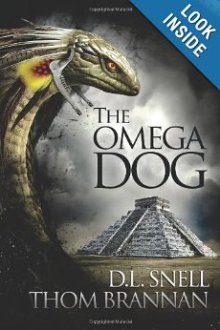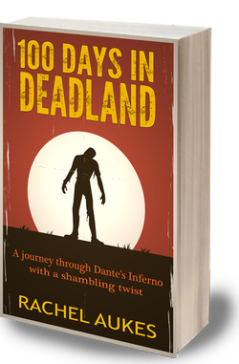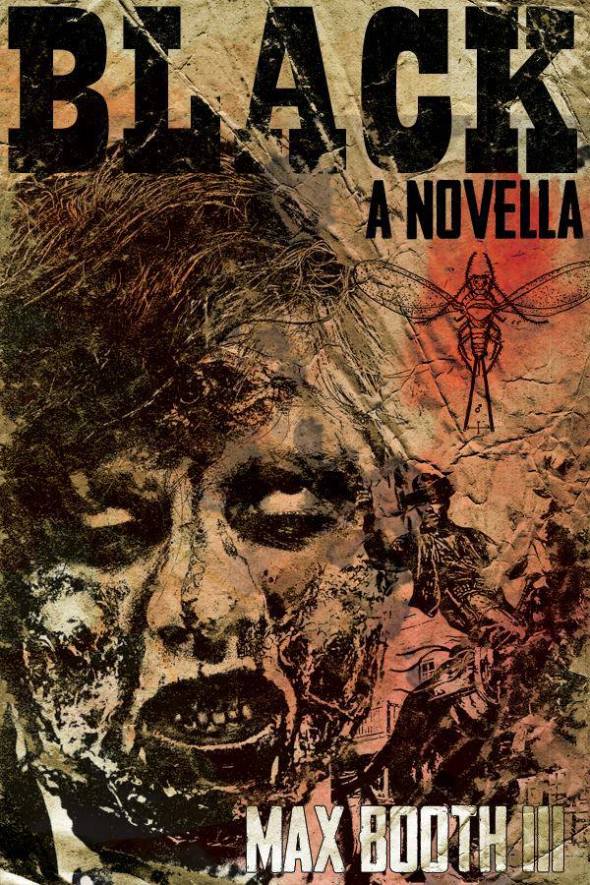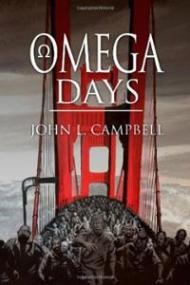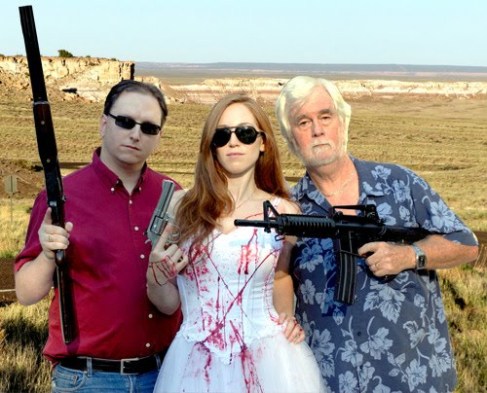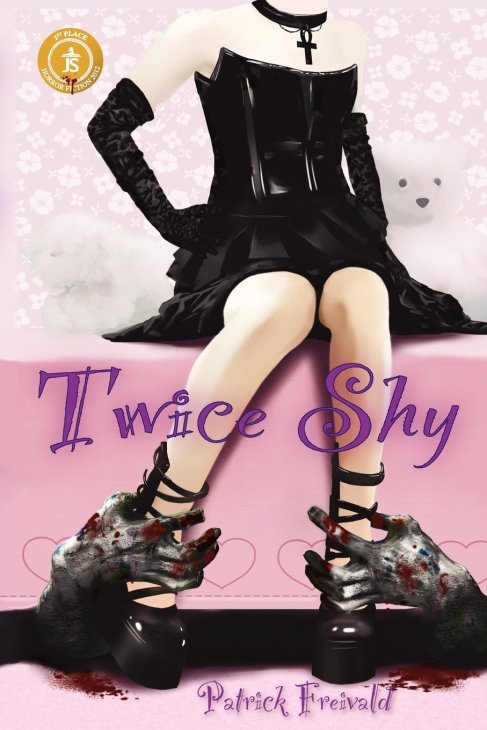Well tomorrow is the opening day for The Savage Dead, and that means my Zombie Masters Series is coming to an end…so I decided to go out with a bang! Today I am bringing you a huge multi-author interview featuring a few of my favorite writers.

First off, we have Joe R. Lansdale, one of the most popular writers working today. He was there at the beginning, when our modern idea of the Romereque zombie was just starting to see print, and he has continued to lead the way as the master and innovator of the genre. But this is Joe R. Lansdale we’re talking about, so mentioning only his zombie fiction is sort of like saying Ray Bradbury wrote about rockets and leaving it at that. He’s mastered crime fiction, the weird western, steampunk, science fiction, fantasy, and of course horror. Like Bradbury, Lansdale is one of the finest short story craftsmen in modern American fiction. And that’s not blowing smoke either. Lansdale really is that good. He’s won nearly every genre award out there, and has fashioned a body of work that looms large in every genre in which he’s worked. I’m honored to have him here as part of this series.
I also got lucky when Carrie Ryan agreed to join me here for an interview. On her website, Carrie describes herself this way: Carrie was born and raised in Greenville, South Carolina. During her time in high school she was: vice president of her class, a cheerleader (no, seriously), captain of the field hockey team (one of only two teams in SC—her team was always state champs) and founder of the girls soccer team (she played on the boys team for a year until the school created the girls team, which, by the way, went from losing every game its first season to being ranked fourth in the state Carrie’s senior year!). She also wrote her first short story, Crab Shell Angels, for Mrs. Carter’s class on Southern Fiction.
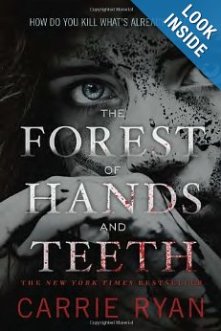
On weekends she read. Everything from Sweet Valley High to Romance to Christopher Pike. As far as her parents know, she never threw a party while they were out of town (*cough*).
Deciding to try a different climate, Carrie went to Williams College (go Ephs!) home of the purple cows—no, seriously, that’s their mascot. She played field hockey and lacrosse for a year before becoming involved in student government and other nefarious organizations. She also spearheaded a project to renovate and re-open the local student pub. She was an avid mountain biker and a member of the Williams Cycling Team (their jerseys were white with purple cow spots—they were easy to pick out of the peloton).
During the various summers Carrie hiked the Wind River Wilderness Mountains with NOLS, worked as an intern at the Greenville County Coroner’s Office, worked on a Mayan archeological dig in El Peten, Guatemala, and taught SAT prep for The Princeton Review.
As it turns out, Massachusetts, while amazing, is cold much of the year. So after graduating and dabbling in an internet start-up (it was 2000, everyone was doing it) she moved to Middleburg, Virginia and worked at the Foxcroft School. That’s where she finished her first book and wrote her second. She tried to convince agents that they really wanted a sensual western historical romance, but they were quite adamant that they did not. So she decided to write chick lit. Unfortunately, most chick lit showcased exciting city life and Carrie’s life was pretty boring in the Virginia countryside. So she came up with the brilliant plan of going to law school and getting a job in a big city so she could have an exciting life to draw from.
And if that didn’t work out, at least she’d still have the legal career to fall back on. It was at Duke Law School where she met her fiancé JP, a speculative fiction writer who taught her all about true love. JP is the one who convinced Carrie to go to that first zombie movie, which for the life of her she can’t remember why—she must have still been trying to impress him because Carrie has disliked all horror movies since the Poltergeist incident of 1983. The remake of Dawn of the Dead fascinated Carrie and JP fanned the fires with more zombies movies and a timely gift of The Zombie Survival Guide (which he read out loud to her every night).
After graduating, they moved to Charlotte and embarked on a plan to get serious about writing. Carrie tried to write her chick lit but that market was dead and she liked young adult books so much better. After a few false starts, JP convinced Carrie to write what she loved and she started writing about zombies. There are so many movies about the days and weeks after a zombie apocalypse, but Carrie wanted to know what happened much later—generations later. The Forest of Hands and Teeth is her first published novel and she’s excited to be writing even more novels set in the same world.
That’s how Carrie describes herself; but me, I just call her awesome.
Next up we have my good friend, Jonathan Maberry. Jonathan burst onto the writing scene with his Pine Deep Trilogy back in 2006 and hasn’t looked back since. Like Lansdale, Maberry is a major threat in a number of formats, everything from short stories to novels to non-fiction to comic books, and Lansdale again, is a master of martial arts. That last part is no exaggeration either. Jonathan is an 8th degree black belt in jujutsu and a 5th degree in kenjutsu. In 2004 he was inducted into the International Martial Arts Hall of Fame. Today he’s best known as the hardest working man in horror, having cranked out so many dazzling hits that I sometimes find myself wondering if he doesn’t have a whole basement full of clones working on stuff simultaneously. I’ll guess we’ll never know, but at least we get to benefit from his tireless imagination. At let’s face it, isn’t the world a better place with guys like Joe Ledger and Sam Hunter in it?
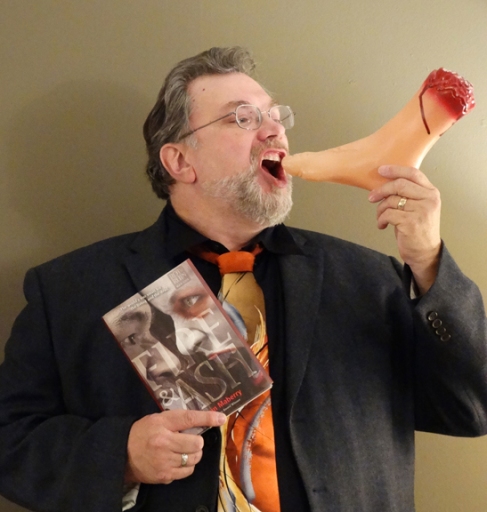
Described by Fangoria Magazine as “the sort of force that dark fantasy and horror are lucky to have,” my next guest is the one and only Gregory Lamberson. Gifted with the art of storytelling, both on the page and in film, Lamberson is a two-time IPPY Gold Medal winner and three-time Bram Stoker Award finalist. Rave reviews of his work have appeared in Fangoria, Rue Morgue, Publishers Weekly, Library Journal and Booklist. All of his books are available in print and as e-books, and some are also available as audio books. In 2013, Medallion Press will publish Lamberson’s novel THE JULIAN YEAR, the first TREEbook, which will employ revolutionary time-triggered branching technology.
Lamberson’s novel PERSONAL DEMONS, winner of the IPPY Gold Medal for Horror, is the first volume in the action packed occult detective series “The Jake Helman Files,” published by Medallion Press. Other books in the series include the zombie novel DESPERATE SOULS, the new Cthulhu themed COSMIC FORCES(nominated for Superior Achievement in a Novel by the Horror Writers Association), and TORTURED SPIRITS, which is scheduled for October 2012. PERSONAL DEMONS, DESPERATE SOULS, and COSMIC FORCES are also available as audio books from Audible.com, and TORTURED SPIRITS will be as well. So keep your eyes out for those, because everything Lamberson touches seems to turn to gold.

And last but not least I’m offering up Shawn Chesser for your reading enjoyment. Shawn is the author of the Surviving the Zombie Apocalypse Series, a run that so far includes five of the best military zombie writing out there, including Trudge, Soldier On, In Harm’s Way, A Pound of Flesh, and Allegiance.
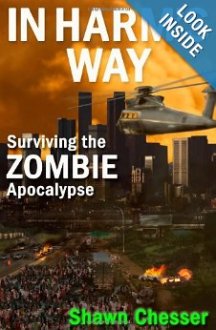
Through a combination of tight, well-structured plots and fully realized characters, Chesser has emerged as one of the top Indie writers in the business. He currently resides in the Pacific Northwest with his wife and two children. He studied writing at Harvard on the hill (PCC Sylvania) many years ago. Shawn is a big fan of the apocalyptic horror genre. Stephen King, Cormac McCarthy and George Romero are strong influences. When not writing, Shawn spends the rest of his time doting on his two children and doing whatever his wife says. But his wife let him off the hook long enough to come play with us today, so let’s get started, shall we?
Joe McKinney: Thanks for joining me here on Old Major’s Dream. I’m glad you could swing by. You’re no stranger to zombie fiction. Would you mind telling the folks out there a little about your zombie-related writing? How do you approach the genre?
Joe R. Lansdale: I was attracted to this branch of monsters when I was a kid. The zombies then were not the eat your flesh kind. They strangled usually. My favorite old zombie film is I WALKED WITH A ZOMBIE. Later, I saw NIGHT OF THE LIVING DEAD shortly after it came out, and that bent me seriously. I never really thought about writing zombie fiction, and I think it was an accident I wrote the first piece. I loved Westerns and horror, and an old movie titled CURSE OF THE UNDEAD had impressed me. It was a Western vampire movie, and these days it would seem tame. I had seen it a few times and just loved the whole idea of it. I decided I wanted to write a horror western, and I decided to combine the idea of zombies/ghouls/vampires/witchcraft and Lovecraftian monsters. But it had a zombie vibe and is usually thought of as a zombie western. It’s amazing to me how much of an impact it has had on the field. I thought of it as a simple, pulp style, comic-book piece. I had great fun writing it, and also wrote a screenplay. It was optioned many times, and the film rights were finally bought by a French film company, Vertigo, and they never made it. So they have the rights, and it’s too bad they never filmed it, and they don’t have any interest in letting any one else have it. Or didn’t it. Maybe that’s changed now. I also wrote an off-beat science fiction western titled ON THE FAR SIDE OF THE CADIALLAC DESERT WITH DEAD FOLKS. It was originally a non-zombie science fiction tale with a modern western tone, but it died on me. And then I was asked to write a zombie story for Skipp and Spector’s BOOK OF THE DEAD, and I added the zombies in. They worked perfect. It’s still one of my favorite pieces. It’s a mixture of parody, pastiche, and at the time some original ideas that have been co-opted by a lot of other writers and film makers. Besides those stories there have been others, including another story about my Western character with another take on the zombie theme, Deadman’s Road. I even wrote a kind of two people having trouble with their marriage, but it takes place in a zombiefied universe. And there are others. Christmas With The Dead, which my son adapted to a low budget film that’s a lot of fun. I don’t know exactly how many I’ve written about zombies. Seven or eight, I think. I don’t have plans to write others, as I’m kind of worn out on the whole zombie thing. But I never say never.
Carrie Ryan: When I first became obsessed with zombies, most of the stories I found focused on the actual zombie apocalypse itself, right when the world becomes irrevocably altered and humanity has to figure out how to adapt and survive (which I love!). I was curious what it would be like if you’d not only been born and raised in a world with zombies, but if your parents and grandparents had too.
So I set my first novel, The Forest of Hands and Teeth, about 150 years after the zombie apocalypse when zombies are just a fact of life (though still threatening!).
Since then I’ve written two sequels (that take place about 20-30 years later) and many short stories (that take place everywhere from right at the zombie apocalypse itself to just before the events in The Forest of Hands and Teeth).
One of the best aspects of zombies as a creature is that there’s really no canon and so every author is free to experiment. For my world I decided to go with a mix of both fast and slow, non-sentient zombies. To me, the scariest thing about zombies is that they seem like they should be so easy to kill: they’re mindless creatures who can’t work together or use tools. And yet, they’re impossible to escape. You can’t outrun the fast ones and with the slow ones, when you have to stop to sleep or eat or whatever, they keep moving which means eventually, they’ll always catch up. Once you’re surrounded by sufficient masses, you’re pretty much hosed. That’s the kind of desperate situation that I love to write about.
Jonathan Maberry: I’ve been writing about my life-impaired fellow citizens for quite a while. I took my first swing at them in a nonfiction book, THE VAMPIRE SLAYERS’ FIELD GUIDE TO THE UNDEAD, which was published in 2000 under the pen name of Shane MacDougall. The book examined various kinds of monsters –folkloric and fictional—including various kinds of zombies. I discussed other aspects of the zombie phenomenon in a series of nonfiction books I wrote for Citadel Press: VAMPIRE UNIVERSE, THE CRYPTOPEDIA, THEY BITE and WANTED UNDEAD OR ALIVE.
Then in 2006-08 Pinnacle Books released my Pine Deep Trilogy (GHOST ROAD BLUES, DEAD MAN’S SONG and BAD MOON RISING), which was about various kinds of vampires preparing to make war on humanity. Some of the vampire subtypes closely resembled the Romero zombie. In 2008 I did a nonfiction book, ZOMBIE CSU: THE FORENSICS OF THE LIVING DEAD, in which I interviewed over 250 experts in various fields (from molecular biology to Homeland security) about how the real world might deal with a zombie plague.
Based on some of the research I did for Zombie CSU, I decided to write my first full zombie novel, PATIENT ZERO for Griffin. It was a techno-thriller with special ops against terrorists with a zombie plague. That book was the first of a series of thrillers featuring former Baltimore detective Joe Ledger; and though the other books dealt with non-zombie threats, I return to the zombie plague in CODE ZERO, the sixth book, due out in March 2014.
I’ve done one zombie comic so far, MARVEL ZOMBIES RETURN, and it was a fun collaboration with Seth Grahame-Smith (PRIDE & PREJUDICE & ZOMBIES), David Wellington (MONSTER ISLAND), and Fred Van Lente (COWBOYS AND ALIENS).
I’ve also written a four-book post-apocalyptic zombie series for teens: ROT & RUIN, DUST & DECAY, FLESH & BONE and FIRE & ASH (all from Simon & Schuster). That series is now being developed for film.
Griffin wanted me to do more zombie novels for adults so I did DEAD OF NIGHT for them in 2011; and I just turned in the sequel, FALL OF NIGHT, scheduled for next August. Legendary horror filmmaker Eric Red (NEAR DARK, THE HITCHER) is writing the screenplay for DEAD and plans to direct.
And I’ve done a slew of zombie short stories, some for adults, some for teens. Some of them have been gathered into an audio collection, HUNGRY TALES (Blackstone).
Gregory Lamberson: Thanks for including me in the dream. I’ve written four books which could be classified as zombie tales. The first was Johnny Gruesome, about a heavy metal obsessed teen who’s murdered and returns from the grave to kill a lot of people; it’s as much a slasher story and an EC Comics story as a zombie deal. Two of my five Jake Helman novels have pitted Jake against hordes of voodoo “zonbies,” and I was delighted to feature old school zombies instead of flesh eaters. A variation, “aqua zonbies,” make an appearance in the fifth book in the series, Storm Demon, which Medallion Press publishes this October. My novella Carnage Road is the only one I’ve written that sticks to the world George Romero and John Russo created, and it’s one of my favorites. It’s about two bikers traveling across America during the zombie apocalypse, and it’s really about humanity. This one was just optioned as a possible movie or TV series with me attached as co-writer, so with any luck I’ll be thinking of new ways to creatively kill the undead for a while.
My main concern is always the protagonist – Jake Helman, Boone and Walker in Carnage Road, and Tony Mace in my werewolf series The Frenzy Cycle. If the reader doesn’t really care about your leads and what happens to them, they’re not going to give a damn about the threats they face. In most of my books, I look for a way to spin traditional monsters and mythology. Jake Helman has faced zonbies toting machetes and machineguns, a Lovecraftian beast with ties to Christian beliefs, and angels and demons who behave like gangsters, and my werewolves have a pretty unique mythology. Carnage Road is really the only thing I’ve written where the monster follows the tropes of a given subgenre, but the heroes, who are really antiheroes, are where I departed from the norm.
Shawn Chesser: My pleasure, Joe! You’ve probably heard other writers in the genre say they were inspired by Romero’s Night of the Living Dead. Well, you can count me among them as well. My Surviving the Zombie Apocalypse universe is full of the same type of flesh eating zombies as in the movies I grew up watching. Except for the really young specimens and the newly turned, my living dead are fairly slow and tend to catch the living by surprise or by overwhelming them in large numbers—hordes and mega-hordes in my novels. Like Romero’s, some of my zombies possess snippets of memory, but in the STZA universe, don’t really utilize them to any kind of advantage… yet.
Joe McKinney: The zombie apocalypse is happening right now. Are you prepared? Would humanity win?
Joe R. Lansdale: Humanity would win. You just wait them out. They rot. That’s the conclusion in CHRISTMAS WITH THE DEAD, the film version. If humanity can gather and wait, it ends. Unless it’s in the air, then we have a new problem. Frankly, I don’t lose sleep over the zombie apocalypse.
Carrie Ryan: If the zombie apocalypse started right now, I’d be screwed. At the last place I lived I could have probably survived a bit (I even wrote a story based on that idea: What Once We Feared, but now I live in a one story house with thin windows and little food. Plus I’m close to a city – if I made it out alive it would be because of sheer dumb luck.
I like to believe humanity would eventually win in a zombie apocalypse, but really it depends on what kind of zombies you’re dealing with. If it’s disease based, there should statistically be an immune segment of the population. If the zombies rot, eventually the large masses will “die” out (can you tell I spend an inordinate amount of time thinking through all of this?). And in the end, my hope would be that at least some groups of humanity could find pockets of safety – I’ve always thought Curacao would be a great place to ride out the zombie apocalypse.
Jonathan Maberry: If there was an outbreak of the zombie plague, I think we have a shot –as long as they’re slow shufflers and not the Olympic Zombie Spring Team. The fast-onset, fast-running zombies is a no-win scenario. Movies like 28 Days Later and Zack Snyder’s remake of Dawn of the Dead show that pretty well. But with the slow zombies –we can get in front of that. Cell phones would allow us to take pics and videos, send and share information, reach out to emergency services, warn our friends, and otherwise survive. Also, we’re sensitized to medical threats and we tend to respond faster now than we did, say, ten years ago. So, yeah, I think we’d survive.
Survival would bring with it a retaliatory attitude and deep paranoia, so having survived we might be in a medically-based version of Big Brother.
Gregory Lamberson: Joe, I am not prepared. I don’t own any weapons, and my cupboards are bare by the end of the week. I know from watching cable TV that there are others out there who are prepared, but frankly, those are the last people I want to see surviving over the rest of us. Or maybe they deserve to make it for keeping their feathers numbered in case of just such an emergency. I’m an atheist, but the zombie apocalypse just might change my views on religion, and if a deity decides it’s time for us to go, the least we could do is follow his or her wishes, right?
Shawn Chesser: I’m prepared for the worst. However, I try to hope for the best. I guess that’s a yes. Humanity certainly has a way of overcoming most adversity… so yes to that as well, unless they’re the fast 28 Days Later buggers. I can’t say with a degree of certainty that we’d be able to survive the turbocharged, rage virus infected type of creatures, so let’s put an asterisk next to the last yes.
Joe McKinney: What’s your favorite zombie book, movie, short story, whatever? (Please feel free to ramble as much or as little as you like here. I’d love to know why that story or movie or whatever grabs you.)
Joe R. Lansdale: My favorite is NIGHT OF THE LIVING DEAD, the original. It was such a game changer, and it scared the hell out of me. It still creeps me. I also like both DAWN’S OF THE DEAD, RETURN OF THE LIVING DEAD. Though it’s low budget, I find CHRISTMAS WITH THE DEAD a strange zombie film, not such much a horror film, but an odd and unique sort of film, made on a shoe-string. But there’s a prejudice in that. It’s my story, my son’s script, my friend Lee Lankford directed, and my daughter did part of the music in the film. But I do think the way it’s approached is what makes it unique. I also like ZOMBIE with Richard Johnson, an Italian film. It’s scummy and fly specked and really creepy; has a real feel of disease about it.
Carrie Ryan: I have to give a nod to the remake of Dawn of the Dead because it was really my first introduction into zombies and started my obsession. But I also love the original Night of the Living Dead. Mostly because when I first watched it, I hated it. I was enraged with the characters and their inability to work together – they made such stupid decisions and by the end I thought they all pretty much deserved to die. But then I heard George Romero speak and he explained that his intent with the movie was to point out that we as humanity have failed to work together to solve large and serious world problems like hunger, poverty, etc.
That was a huge eye opener to me and suddenly I saw the movie in an entirely different light. We were supposed to be that frustrated with the characters — that was the point. It was the first time I realized that a storyteller could want you to dislike a character and I loved that.
Jonathan Maberry: I often have multiple favorites, with individual works held in esteem because they touch a certain nerve or speak to me in a specific way. That said, here are some favorites:
Favorite zombie novel is DEAD CITY by Joe McKinney. It’s a ‘get off your ass and get it done’ book. The hero is a cop and he survives because he uses that skill set. Too often a professional is presented as clumsy, stupid or ineffective. In Dead City we see a law enforcement professional who survives because of his training, even when everything else is falling apart. The author doesn’t waste half of the book having the character stand around and philosophize in situations where action is what’s required. And the action in the book is nonstop.
Favorite zombie anthology: BOOK OF THE DEAD, edited by John Skipp and Craig Specter. This book was released in 1989 and is pretty much the foundation upon which all zombie literature has been built. Skipp and Specter brought together Richard Laymon, Stephen King, Ramsey Campbell, Steve Resnic Tem, Les Daniels, Douglas E. Winter, Joe Lansdale, Robert McCammon and other serious heavy hitters in a batch of stories that is as timely and readable now as they were upon publication. The editors are often criminally overlooked when people talk about zombie pop culture. They planted the seeds in the minds of many, many writers.
Favorite zombie movie: the unrated director’s cut of Zack Snyder’s DAWN OF THE DEAD. I love slow zombies on TV and in books, but I like the higher-energy thrills of the fast ones on film. And, the cast is superb, the soundtrack is killer, the effects terrific, and the pace breakneck.
Favorite zombie TV: It’s a dead heat between THE WALKING DEAD, which is brilliant and so much fun, and DEAD SET, the BBC miniseries about the zombie outbreak happening during the filming of the TV show Big Brother. Funny, bloody, scary and so well-written.
Favorite zombie comic: Robert Kirkman’s THE WALKING DEAD runs neck-and-neck with the first of the Marvel Zombie stories, back when they were part of the Ultimates universe.
Favorite zombie short story: “What Maisie Knew” by David Liss. Elegant and disgusting –two words that seldom fit into the same description, but they work here. David is best know for his Edgar Award-winning historical mysteries, so when he did this story he came right out of left field and blindsided folks.
Gregory Lamberson: For decades my favorite zombie flick was Dawn of the Dead, but now Shaun of the Dead equals perfection on my scale. Besides, I can watch Shaun with my whole family; my daughter is too young for the stronger stuff, and zombies really disturb my wife. As far as novels go, I have two favorites: Dead City, which has a fantastic pace and a really good depiction of how the apocalypse all goes down, and The Sinister Mr. Corpse by Jeff Strand, which is as funny as you would expect. I forgot who wrote Dead City.
Shawn Chesser: The remake of Romero’s Dawn of the Dead really grabbed me when it came out. The credit sequence at the beginning when Johnny Cash sings ‘When the man comes around’ is priceless. I could watch that all day. Ving Rhames also did a great job of portraying a LE member trying to cope with a seemingly impossible band of survivors. Now I’m not sucking up here, but your Apocalypse of the Dead was one of the first eBooks I ever downloaded and read on my first iPhone. I’m a helicopter and aviation buff so you had me hooked with the first couple of paragraphs. Hopefully, one day I’ll hone my prose to maybe approach something close to your caliber of writing. Congrats to all of your success! OK that was sucking up. I was a fan of the Zompoc before I started writing about it… so I’m allowed that…aren’t I? Another book that resonated with me early on is Stephen King’s ‘The Stand.’ I loved the whole good versus evil scenario. I really got into the characters and enjoyed the vivid, yet bleak, depopulated landscape King describes so well. Another post-apocalyptic favorite of mine is Cormac McCarthy’s ‘The Road,’ his descriptive style of writing had me feeling cold and hungry during the entire read.
Joe McKinney: What’s your favorite zombie kill scene of all time?
Joe R. Lansdale: ZOMBIE, the Italian film is full of them. And there’s kill scenes that the zombies provide, like the one where they pull the character’s eye in a sharp fragment of lumber.
Carrie Ryan: Oooh, that’s a tough one! There are so many! I’m definitely a fan of the lawnmower scene from Dead Alive. But I think a scene that’s always stuck with me is when they have to kill the mom in Shaun of the Dead. Especially because so much of that movie is hilarious, that particular scene becomes such an emotional gut punch.
Jonathan Maberry: My fav is Bub’s revenge on Captain Rhodes for the murder of Dr. Logan. It was the first time I rooted for a zombie. And I’d like to think that Bub is still out there, wandering the wastelands and maybe evolving into something new and interesting.
Gregory Lamberson: I think machete head in Dawn of the Dead is the most iconic, but I thought Romero came up with some great ones in Survival of the Dead, which I love dearly and deserves to be seen by as many people who tune in to The Walking Dead every week.
Shawn Chesser: The newborn Z in the Dawn of the Dead remake is one that really sticks out in my mind. Even though you don’t actually get to see the baby being put down, the fade to black followed by the echoing gunfire paints the picture. I have a few scenes scattered throughout my series where kids kill, and also are killed themselves—both by zombies and humans—and as a result, I have received a couple of good natured tongue lashings.
Joe McKinney: I’ve always felt the best and most effective horror is trying to investigate what we think of ourselves and what it means to be us. Washington Irving’s tales, for instance, generally grapple with the question of what it means to be an American in the post-Revolutionary War period. Nathaniel Hawthorne battled with the intellectual promise of a nation rising to international credibility while simultaneously choking under the yolk of a Puritan past. Stephen King made a name for himself chronicling the slow collapse of the American small town way of life. What do you think the zombie and its current popularity is telling us about ourselves?
Joe R. Lansdale: I think it’s the idea of our culture eroding, changing. I think we go through these periods, and then we find that we have changed with it, or at least the next generation in line has. And then it’s their turn. I think boiling this complex, technological world down to something simple is part of it. People would like for it to be simple, and on some level the idea of the whole thing collapsing, even with zombies, is appealing to some; same impulse for the goobers who run around in the woods in camo- pants hoping the government would collapse. If it did we’d all last about fifteen minutes, and for those who might last, it wouldn’t be nearly as fun as a movie, and you might not be the hero of the event.
Carrie Ryan: What I love about zombies is that as a metaphor, they can be used to mean so many things! Look at George Romero who used them to criticize consumerism and our inability to work together to solve large problems. Danny Boyle used zombies to chronicle fear and/or mistrust of scientific experiments in 28 Days Later. In Isaac Marion’s Warm Bodies, the zombies are essentially emotionless shells.
Personally, I love zombies as representative of a fear of life unlived or unexamined. When we refer to someone as a zombie at work or school, we mean that they’re just going through the motions. There’s no thought or passion or even purposeful intent in their actions. At least in my own writings, zombies exist for existence’s sake. All they do is occupy space: they don’t think or love or feel or care or plan. How is that different from a lot of the living who wake up and go through the motions of life without conscious thought? Without questioning?
They say that whenever the economy crashes, the popularity of zombies increases. There’s a part of me that wonders if that’s because people are suddenly shaken out of their comfort zones. They can’t just continue as they had before and are forced to re-examine their lives and their priorities. They’re forced to figure out what separates them from someone who just occupies space. I think zombies remind us that we’re still alive and we should treasure that.
Jonathan Maberry: There are so many reasons why zombie fiction and movies work and except for the shallow few, mostly it’s because it pushes some emotional, psychological or cultural buttons. Subtext has become the text in zombie pop culture. That said, the things about the genre that appeals most to me are the debates over issues like the definition of what makes us human, the value of human life, the right to survive, and exploring the line between the needs of immediate survival and the preservation of civilized societal values.
For example, in my ROT & RUIN novels he older brother of the protagonist teaches his younger brother that zombies were once people. They had lives, dreams, loves, families, expectations. All of that was stolen from them by a plague. They each died afraid and in pain. They are victims of a disease. Even though we have to fight the zombie, and kill it to survive, we can’t at any time disrespect it or what it was. To do that is to perpetuate a process of dehumanization.
Gregory Lamberson: Zombies are popular because they’re reflections of ourselves. Romero and Russo hit on the perfect formula, and every good zombie story someone creates, in awhatever medium, tells us something about ourselves, and that’s why such seemingly limited characters are actually limitless. Bub listening to a Walkman or thumbing through a Stephen King novel says it all. Zombies are obsessed with the same things we are (other than human flesh), and seeing continue our daily pastimes conveys the same sort of revealing satire as watching the apes in Planet of the Apes behave like humans. These images tell us we build our lives around some pretty silly materialism and habits. Because zombies are us, the idea of being eaten by them is a lot more frightening than being eaten by dinosaurs, sharks, or Martians.
Shawn Chesser: I think we are all facing a new type of world filled with a lot of uncertainty. In a way some of us are already living in a post-apocalyptic world; one where war is an ongoing occurence and everyday life has been turned upside down. Earth is becoming incredibly crowded and our resources are in danger of being stretched very thin or even running out eventually. Then, we are bombarded on a daily basis with news of the next… near-miss asteroid fly-by, coronal mass ejection from the sun, bird, or bee die off, etc… Maybe the masses find some comfort in reading and watching post-apocalyptic entertainment because it’s a way absorbing information that they may have to fall back on later. At any rate, like I said earlier, I’ll prepare for the worst, and hope for the best. Thanks for presenting me with the opportunity to babble away at you, Joe.






